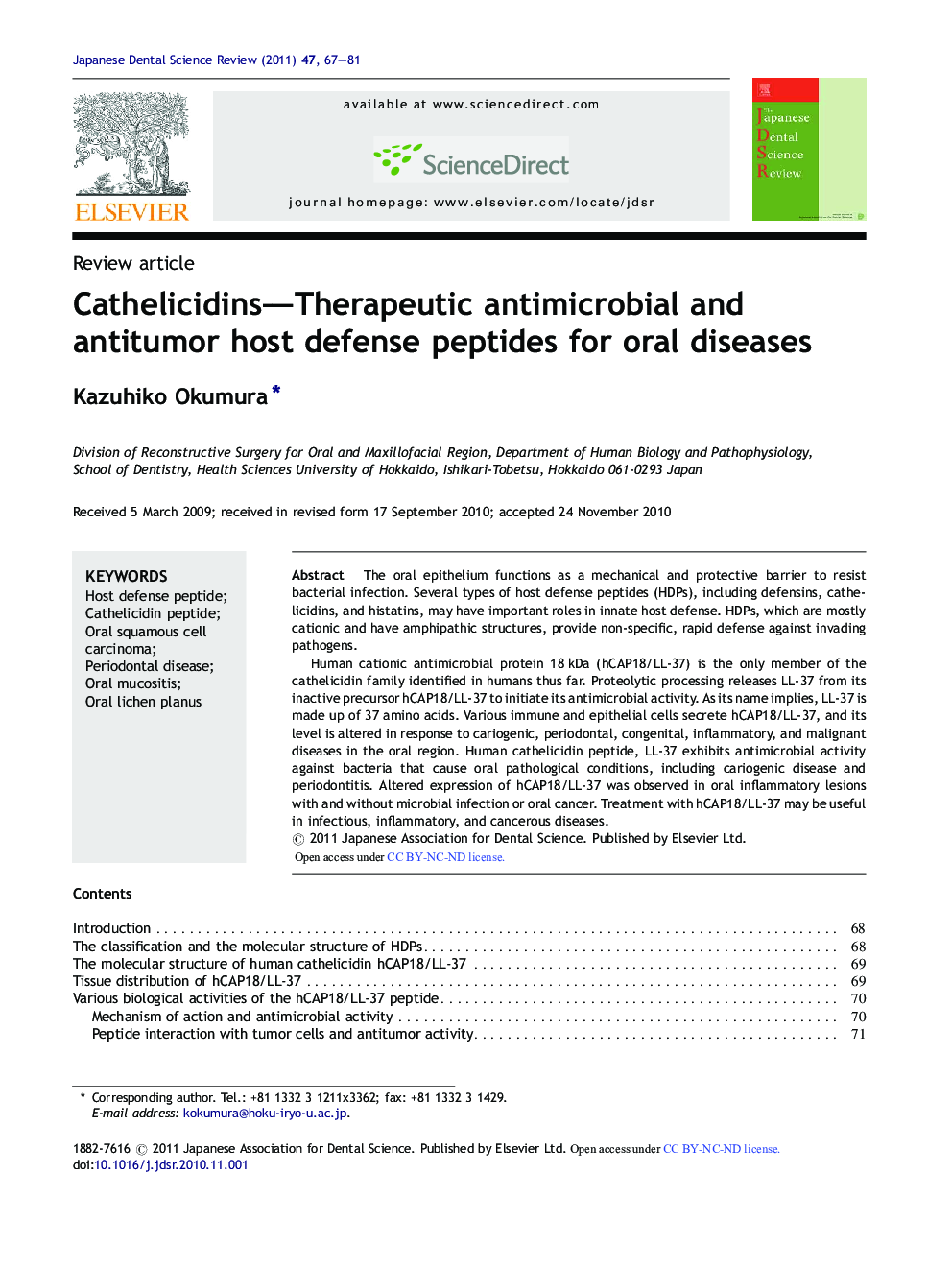| Article ID | Journal | Published Year | Pages | File Type |
|---|---|---|---|---|
| 3136979 | Japanese Dental Science Review | 2011 | 15 Pages |
The oral epithelium functions as a mechanical and protective barrier to resist bacterial infection. Several types of host defense peptides (HDPs), including defensins, cathelicidins, and histatins, may have important roles in innate host defense. HDPs, which are mostly cationic and have amphipathic structures, provide non-specific, rapid defense against invading pathogens.Human cationic antimicrobial protein 18 kDa (hCAP18/LL-37) is the only member of the cathelicidin family identified in humans thus far. Proteolytic processing releases LL-37 from its inactive precursor hCAP18/LL-37 to initiate its antimicrobial activity. As its name implies, LL-37 is made up of 37 amino acids. Various immune and epithelial cells secrete hCAP18/LL-37, and its level is altered in response to cariogenic, periodontal, congenital, inflammatory, and malignant diseases in the oral region. Human cathelicidin peptide, LL-37 exhibits antimicrobial activity against bacteria that cause oral pathological conditions, including cariogenic disease and periodontitis. Altered expression of hCAP18/LL-37 was observed in oral inflammatory lesions with and without microbial infection or oral cancer. Treatment with hCAP18/LL-37 may be useful in infectious, inflammatory, and cancerous diseases.
